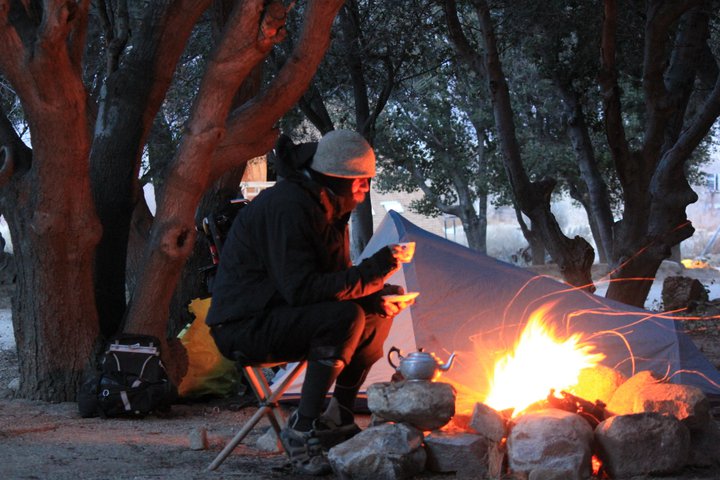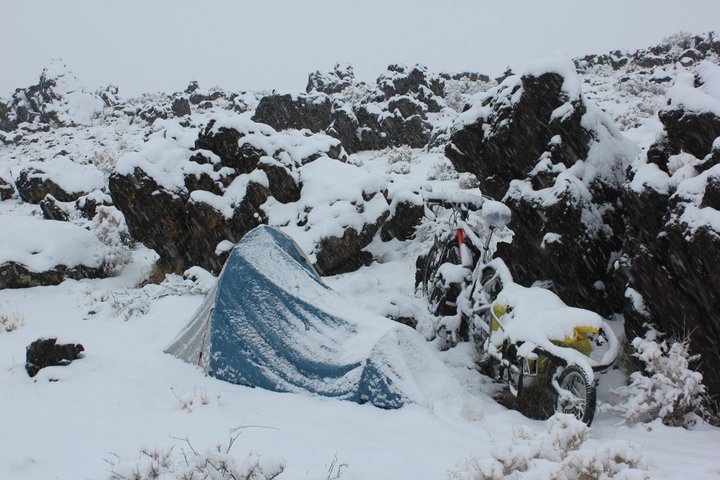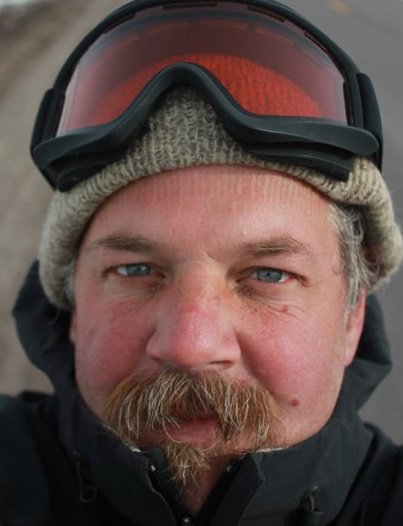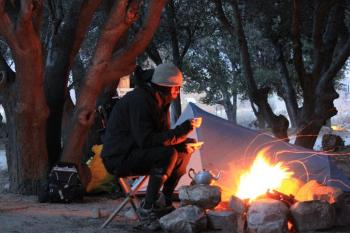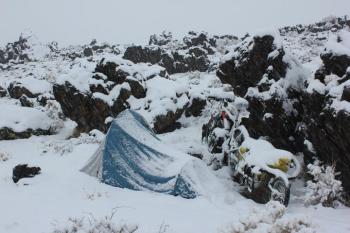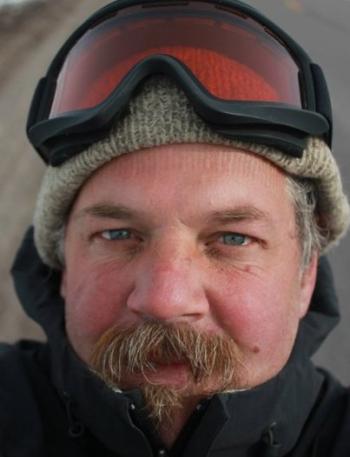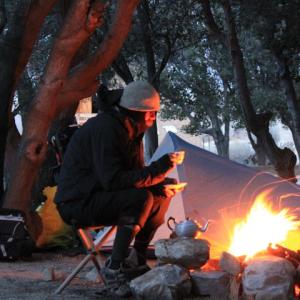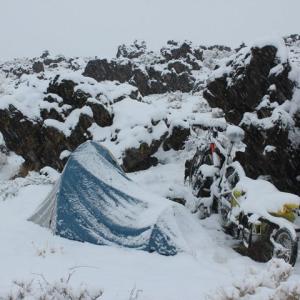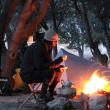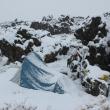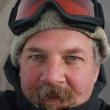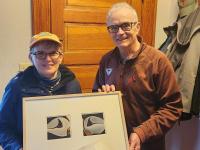Rockland sailor pedals coast to coast
ROCKLAND — "There's only one way to make a martini: vodka, vermouth, olive. And it's stirred." Paul looks with disdain at the various imposters gracing the menu. "These are not," he says, "martinis." In Paul's world, there is no excuse for this kind of carelessness; things should be called what they are, even in the small Rockland café where we've come to discuss his upcoming transcontinental bicycle tour.
His language is expressive, but concise, and the broad scope of his conversation is anything but rigid. There is infinite room for curiosity, but on his terms. It is this desire to temper himself against the world at large, understand the characters who inhabit his country while discerning his place within it, which leads him onto the road year after year. He pedals the thousands of miles of road between the coasts, taking stories and pictures and leaving the stamp of his irrepressible character.
When Paul wasn't working as cook aboard the schooner Nathaniel Bowditch this summer, you could see his green touring bike propped against a parking meter outside Rock City Café in Rockland, an ornate tin tea-pot daintily mounted above the front wheel like a figure-head, belying the rugged appearance of both the bike and its rider. Paul is a large man, and looks as incongruous perched atop his mount as the teapot, but he is the sort of person who thrives on paradoxes. Inside, you could see his large frame hunched over a map and a laptop, a cup of coffee at his elbow, perusing the terrain and planning his route.
From Paul's Facebook page:
"A winter's bicycle journey through the USA, with the goal of collecting hundreds of portrait images using both a 4x5 Speed Graphic and a Mamiya C220. Beginning in October, I will load up my touring bike with all the required gear for an extended journey and, in addition I will be carrying a large format camera, plus film and other photo graphic supplies. Much like itinerant photographers from times past I will set up my gear and take portraits along the way. I have just traded a bicycle for a horse."
His Kickstarter project
"I'll spend months planning, marking maps, deciding where I'll go day by day, how long it will take me," he said. "And then, when I'm on the road, wooosh! It's all gone, I don't think about it."
He seems to revel in the abandonment of his meticulous plans, like a departure from the rigid control, self imposed and otherwise, of his life on the boat.
The road is long, and the cold, wet weather and the monotony of the trail sometimes weigh him down, but seldom for long.
"Some days I wake up, and the last thing I want to do is roll out of my warm sleeping bag and start biking," he said. "But as soon as I start moving, establishing a rhythm, I remember, right, this is why I do this."
It is less about exercise and record breaking than discovery, although biking across the states once is quite a feat, let alone twice in one winter as Paul plans to do. But he tries to stay mindful of his purpose.
"If I ever get to the point where I am saying to myself, 'gotta make twenty more miles today', and I don't let myself take time out to see something exciting like the World's Largest Funeral Home, I know I need to slow down."
It's these quirky salient features that define the character of a region, yet the mundane is, to him, equally fascinating.
"In every town in this country, right now, you could see the same thing: three old guys, sitting in a diner, talking the same politics and telling the same jokes they've been telling since high school," he said. "You know, the Regulars. The only difference is that in one state they'll smell like lobster bait, and in another they'll smell like cow manure."
His tone isn't derisive. From the totally mundane comes epiphany; that is what he is trying to recover.
His trip will be documented by daily portraits of the characters he meets along the way, taken with a large format camera, which he will be carrying with him along with a collapsible darkroom and developing chemicals. His justification for the addition of such bulky machinery on the sort of trip where every pound counts is a good indication of the illusive goal of his trip.
"It makes people more comfortable," he said. "It's not subtle, and so it's less invasive. You aren't 'taking' a picture the way you do with a little digital camera, it's a more give and take experience. I'm also a very shy person, and I find that it breaks the ice. People are curious about this large, awkward apparatus; they want to know what I'm doing. It's much easier for me to get to the point where I can ask them if I might take their portrait."
It is a process of discovery, he isn't just taking photographs for memory, the photographs are about instantaneous connection, about a moment, not frozen, but alive. He seeks the subtle differences, the human making factors of our features. He is collecting these moments, they, more than anything, will punctuate and give meaning to his thousands of pedaled miles.
What stands out most about the trip?
"I remember biking down a dusty Midwestern road, past this totally unremarkable little house: picket fence, driveway, small dusty lawn, and of all of the countless things I have seen on my trips, that's the one that always comes back to me. Some day I'll be biking down that road again and I'll think, 'this is it, I made it back.'"
Back to the absolution of the mundane, the perfection of the totally ordinary. His fascination with the people he meets and the places he travels is deeper than a tourist's desire to see the fabulous and obscure. The real fabric that ties it all together is totally unremarkable, like his dusty Midwestern road. That, above all, is what he seeks.
Event Date
Address
United States

